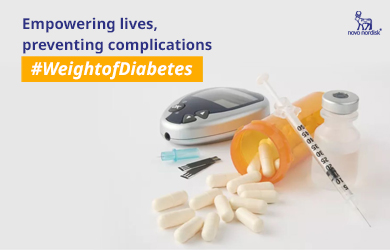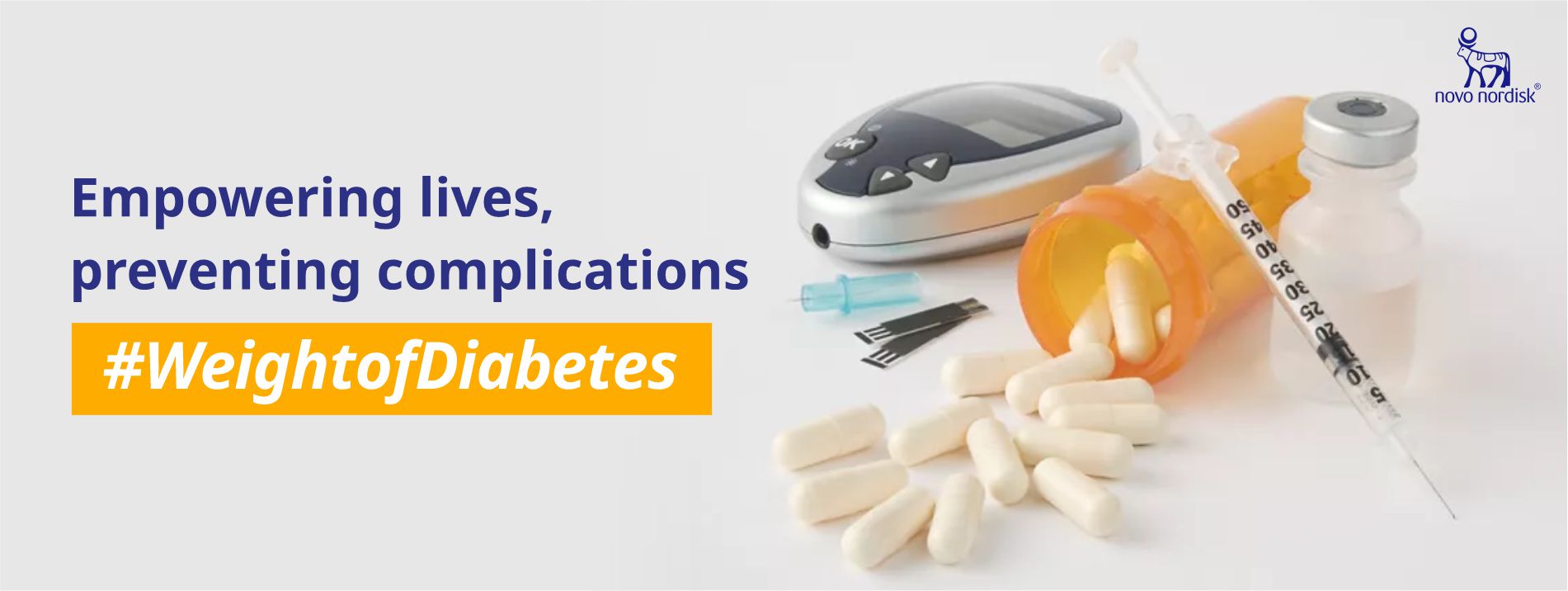
Diabetes Complications: 5 Red Flags you shouldn’t miss
While medications and lifestyle choices form the cornerstone of effective diabetes management, it's crucial to recognise warning signs that might indicate worsening conditions.

The following are some of the Type 2 diabetes complications that you should keep an eye out for:
If a medication that once effectively regulated your blood glucose levels suddenly loses its potency, consider this a substantial red flag. This could indicate a potential progression of the disease or an underlying secondary issue such as increased stress, hormonal changes, or even another undiagnosed medical condition. Whether you have Type 1 diabetes or Type 2 diabetes, maintaining stable blood sugar levels is of paramount importance, and an a poor response to medications can lead to fluctuations in your blood glucose, causing further complications. Consult your healthcare provider immediately for alternative treatment options and to explore newer possibilities in diabetes management.
Distinct from everyday soreness or fatigue, pain in diabetic neuropathy—often described as tingling, burning, or numbness—can signify worsening neuropathy, particularly if it manifests in extremities like the hands or feet. This persistent pain is an indicator that the nerves are being damaged, a frequent complication of uncontrolled diabetes. Immediate consultation with a healthcare provider is advisable for a thorough evaluation, including potential adjustments to your current treatment regimen. Do not ignore this sign of diabetes complications arising.
Foot care is an essential aspect of diabetes management, especially given the heightened risks of neuropathy and circulatory issues commonly associated with the disease. The appearance of ulcers on the feet should be treated as an emergency condition. Ulcers could lead to infections that, due to circulatory complications of diabetes, can escalate rapidly. These might result in the need for surgical intervention if not addressed promptly.
A change in urination patterns, such as an urgent or frequent need to urinate, can signify a decline in diabetes control. This can be a vicious cycle as poor blood sugar control can also lead to urinary tract or bladder infections, making the condition even more complex to manage. Uncontrolled diabetes can even affect bladder sensations, contributing to issues with bladder control and function.
If you find that wounds, particularly minor cuts or abrasions, are taking an unusually long time to heal, it's a sign that your diabetes could be worsening. Delayed wound healing can also be an indicator of poor circulation or an impaired immune system, both both of which are associated with diabetes. This calls for prompt medical assessment to address the root cause and prevent further complications like infections.
Consult a healthcare provider if you notice any of these warning signs of worsening diabetes symptoms, as newer possibilities in diabetes management may offer effective solutions. In fact, these new advancements in diabetes management not only offer better blood sugar control but also encourage healthy weight loss. Together, let's minimise the burden of diabetes and improve the quality of life for those grappling with this chronic disease.
IN23CD00266